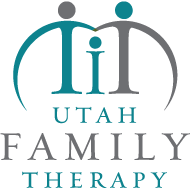Harnessing Healing: The Power of Internal Family Systems Therapy at Utah Family Therapy
In psychotherapy, various modalities aim to delve into the intricate layers of the human psyche to foster healing and growth, one of those therapy modalities is called Internal Family Systems Therapy .
Internal Family Systems (IFS) therapy stands out as a profound approach that identifies the complexities of one’s inner world and offers a framework for understanding and harmonizing conflicting aspects of the self.
Utah Family Therapy has embraced IFS as a foundational pillar of its therapeutic approach, utilizing its principles to guide individual and group treatments.
This article explores the essence of IFS, its integration into the practices of Utah Family Therapy, and the transformative impact it has on clients’ lives.
Table of Contents
Understanding Internal Family Systems (IFS)
IFS, developed by Richard Schwartz in the 1980s, is grounded in the belief that within each individual exists an assortment of subpersonalities or “parts,” each with unique thoughts, emotions, and motivations.
Imagine yourself as a puzzle, and each piece of that puzzle is an emotion and forms the entire internal picture.
Instead of a visual picture, it’s a picture of emotions, there’s a piece of anger, resentment, love, joy and all of the other emotions that you have.
Learn to love each piece of this puzzle.
These parts are organized within a your internal system and may range from protective mechanisms to wounded aspects of the self.
The concept of the Self is central to IFS, which represents an individual’s core, compassionate, and undamaged essence.

The Therapeutic Journey in IFS Involves:
- Exploring and understanding these internal parts.
- Uncovering their roles.
- Facilitating a dialogue between them to foster harmony and integration.
Rather than pathologizing symptoms, IFS views them as signals of underlying conflicts among internal parts seeking resolution.
By accessing the Self and cultivating self-leadership, individuals can heal emotional wounds, alleviate distress, and develop greater self-awareness and authenticity.
Incorporating IFS at Utah Family Therapy
Utah Family Therapy adopts IFS as a fundamental approach to address a myriad of psychological challenges, from trauma and anxiety to relationship issues and behavioral patterns.
At the core of this integration lies a deep commitment to honoring each client’s internal landscape with compassion and curiosity.
In individual therapy sessions, therapists at Utah Family Therapy work collaboratively with clients to identify and explore their internal parts.
Through guided introspection and mindful inquiry, clients develop a deeper understanding of their inner dynamics, gradually gaining insight into the origins and functions of their protective and wounded parts.
Therapists facilitate a process of self-discovery, empowering clients to access their Self and cultivate a compassionate stance towards their internal experiences.
Group therapy settings offer a unique opportunity to apply IFS principles within a supportive community.
Utah Family Therapy designs group sessions to create a safe space where clients can share their experiences, receive validation, and witness the journeys of others.
Participants learn to recognize shared patterns and dynamics within these groups, fostering a sense of interconnectedness and empathy.
Through guided exercises and group discussions, members explore their internal parts, navigate relational dynamics, and practice self-compassion in the presence of others.

The Integration Process
Integrating IFS into therapy at Utah Family Therapy involves a multifaceted approach that emphasizes empowerment, collaboration, and holistic healing.
Therapists undergo specialized training in IFS to deepen their understanding and proficiency in applying its principles effectively.
Through ongoing supervision and peer consultation, therapists refine their skills and stay attuned to the evolving needs of their clients.
The integration process extends beyond the therapy room, as clients are encouraged to apply IFS principles daily.
Therapists provide clients with tools and techniques to cultivate mindfulness, self-compassion, and emotional regulation outside sessions.
Through journaling, meditation, and experiential exercises, clients learn to identify and engage with their internal parts in real time, fostering greater resilience and self-mastery.
The Transformative Impact
The utilization of IFS at Utah Family Therapy yields profound transformations that extend far beyond symptom relief.
Clients report enhanced self-esteem, greater emotional resilience, and improved interpersonal relationships as they deepen their understanding of themselves and navigate life’s challenges with newfound clarity and compassion.
By embracing their internal diversity and integrating conflicting parts, clients experience a profound sense of wholeness and authenticity, reclaiming agency over their lives and forging lasting healing and growth.

Conclusion
Internal Family Systems therapy stands as a beacon of hope in psychotherapy, offering a transformative approach to healing that honors the complexity and resilience of the human spirit.
At Utah Family Therapy, IFS is a guiding light, illuminating the path to self-discovery, healing, and empowerment.
Through the compassionate exploration of internal parts and the cultivation of self-leadership, clients embark on a journey of profound transformation, reclaiming their inherent worth and embracing the fullness of their being.
As IFS continues to weave its way into the fabric of therapeutic practice, its ripple effects extend far and wide, igniting a wave of healing and growth reverberating throughout individuals, families, and communities.
Action Steps
For individuals seeking to explore Internal Family Systems (IFS) therapy as a means of personal growth and healing, here are some actionable steps to consider:
- Research and Education:
- Familiarize yourself with the principles and concepts of IFS therapy by reading books authored by Richard Schwartz, the founder of IFS, such as “Internal Family Systems Therapy” and “You Are the One You’ve Been Waiting For.”
- Explore online resources, articles, and podcasts that provide insights into the IFS approach and its application in therapeutic settings.
- Self-Assessment:
- Reflect on your own internal experiences and patterns of behavior. Consider the different “parts” within yourself and how they may interact with each other.
- Identify areas of your life where you experience recurring challenges or emotional distress. Pay attention to any patterns or themes that emerge.
- Seek Professional Guidance:
- Find a therapist or counselor who is trained in Internal Family Systems therapy. Look for practitioners who have completed specialized training and have experience working with IFS.
- Schedule an initial consultation to discuss your goals, concerns, and readiness for engaging in IFS therapy. Ask questions about the therapist’s approach and how they integrate IFS principles into their practice.
- Therapy Sessions:
- Participate actively in therapy sessions by being open and honest about your thoughts, feelings, and experiences.
- Work collaboratively with your therapist to identify and explore different parts of yourself, including protective parts, wounded parts, and the core Self.
- Practice mindfulness and self-compassion techniques your therapist teaches to cultivate a deeper connection with your internal world and promote healing.
- Homework and Integration:
- Engage in therapeutic homework assignments between sessions, such as journaling, guided meditations, or creative expression exercises.
- Apply IFS principles in your daily life by noticing and acknowledging different parts of yourself as they arise. Practice self-compassion and curiosity in your interactions with these parts.
- Seek opportunities for self-reflection and self-care to support your ongoing journey of healing and integration.
- Peer Support and Community:
- Connect with others exploring IFS therapy or similar personal growth and healing approaches.
- Join online forums, support groups, or workshops dedicated to IFS where you can share experiences, learn from others, and receive encouragement and validation.
- Continued Learning and Growth:
- Stay curious and open to new insights and discoveries about yourself through therapy.
- Attend workshops, conferences, or advanced training opportunities in IFS to deepen your understanding and practice of the approach.
- Celebrate your progress and milestones along the way, recognizing the courage and resilience it takes to embark on a journey of self-discovery and healing.
By taking these action items, individuals can embark on a transformative journey of self-exploration and healing through Internal Family Systems therapy, empowering them to cultivate greater self-awareness, resilience, and authenticity.
